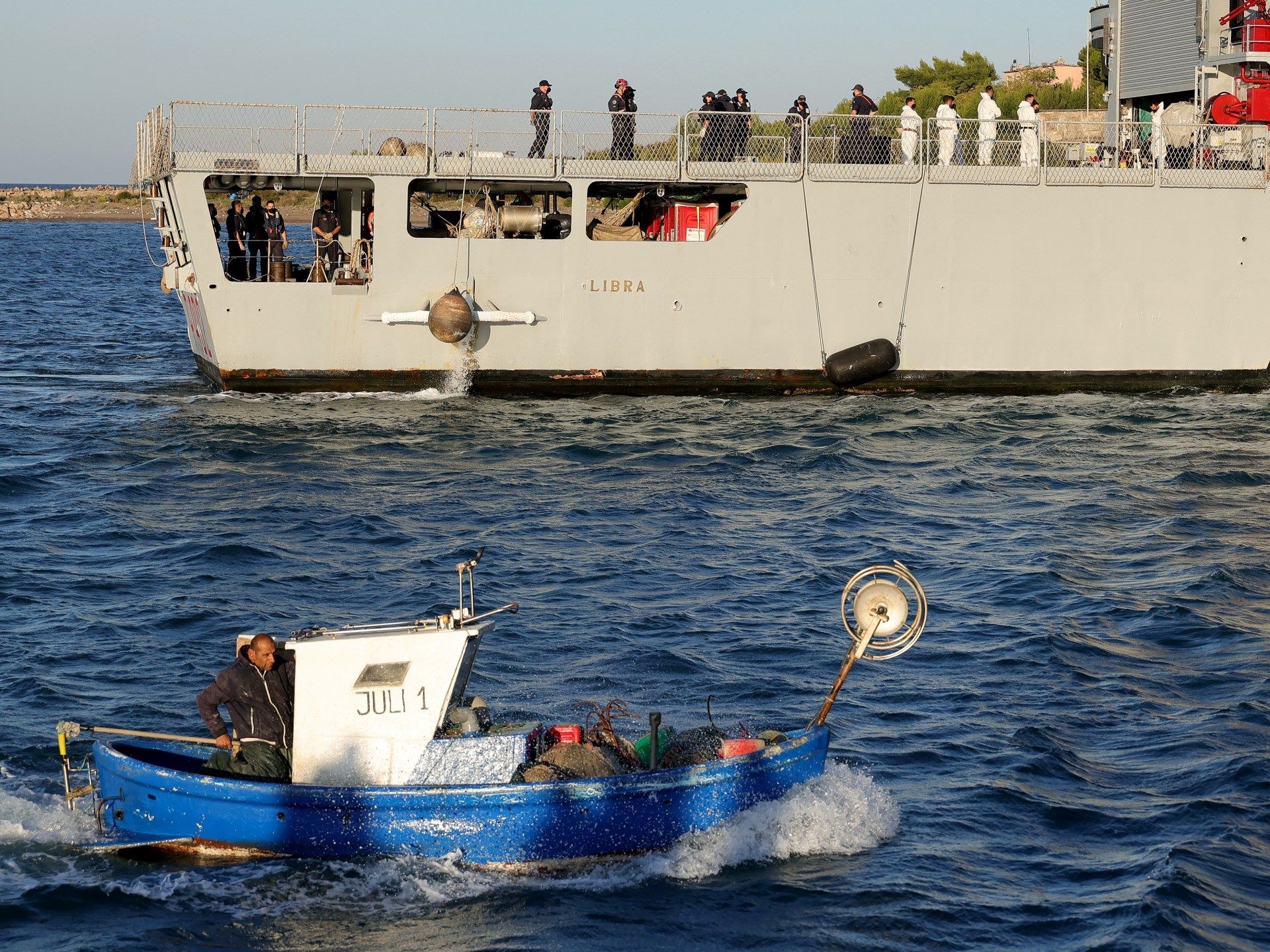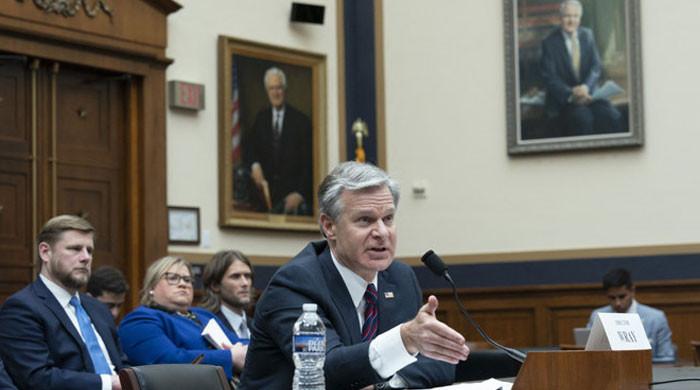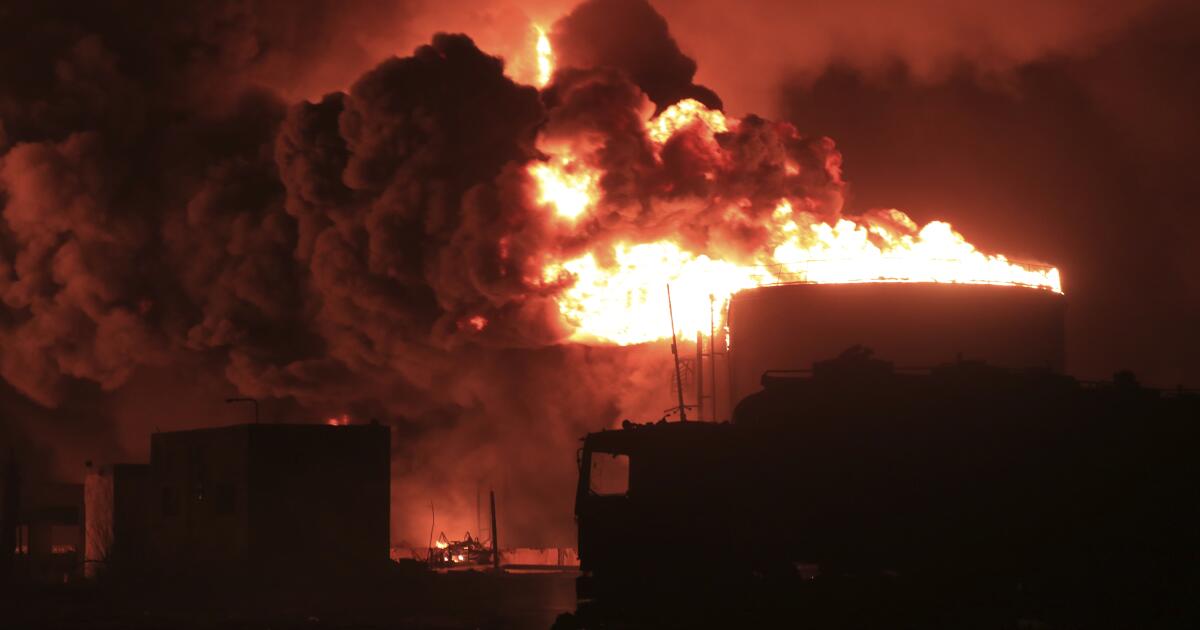An Italian navy ship docked in Albania to transport refugees and migrants, the first such mission under a controversial deal between the two countries that sends asylum seekers outside the European Union while their applications are processed.
The ship, carrying 16 men who were detained in Italian waters, arrived at the port of Shengjin on Wednesday. The deal has been heralded by Italy's right-wing government as unprecedented and watched by other EU states seeking to toughen immigration policies, but human rights groups have criticized it for undermining human rights.
Ten men from Bangladesh and six from Egypt disembarked from the ship. They are the first to arrive under the agreement, signed by Italy and Albania in November.
The Libra warship set sail from the port of Lampedusa on Monday. According to authorities, the refugees were rescued at sea after leaving Libya last week.
Upon arrival in Albania, they were escorted to the doors of a processing center located a few meters from the ship. Their cases will be heard at a nearby air base in Gjader, which can accommodate 3,000 people.
Italy has opened two centers in Albania, where it plans to process up to 36,000 asylum seekers per year. The centers will operate under Italian law and will have security, staff and Italian judges who will hear cases by video from Rome.
Under the agreement, initially agreed for five years by Italian Prime Minister Giorgia Meloni and her Albanian counterpart Edi Rama, people will initially be examined on board the boats that rescue them before being sent to Albania for further evaluation. .
Refugees intercepted in Italian waters who are considered the most vulnerable, including women and children, will be taken to Italy.
The deal is being implemented as other EU states look to adopt tougher immigration stances amid pressure from the far right, which made significant gains in EU elections in the summer.
Albania has said it will work exclusively with Italy.
'Cruel experiment'
A small group of activists gathered at the port entrance to protest the arrival of refugees, holding a banner that read: “The European dream ends here.”
Human rights groups have questioned whether the agreement complies with international law.
Amnesty International has described the centers as a “cruel experiment.” [that] “It is a stain on the Italian government.” Doctors Without Borders said the new strategy “raises serious human rights concerns.”
Meloni brushed aside the criticism in comments Tuesday.
“It is a new, brave and unprecedented path, but one that perfectly reflects the European spirit and has everything necessary to be followed also by other non-EU nations,” he stated.
The first mission under the deal comes ahead of an EU summit in Brussels this week, where migration will be a major topic.
In a letter to member states ahead of the talks, European Commission chief Ursula von der Leyen said the bloc “could draw lessons from this experience in practice.”
'Part of the problem'
Critics have stated that, given the high cost of the operation, the limited capacity of processing centers and the fact that it is unlikely that Italy will eventually be able to deport most of the refugees, the agreement will not have the effect of ” deterrence” desired. .
Migration researcher Matteo Villa of Datalab Europe said: “The more migrants decide to make the journey, the higher the probability of being brought to Italy because the capacity of the Albanian center is fixed.”
“No matter how you look at it, the idea of opening a center in Albania will not only not be part of the solution, but will become part of the problem,” he argued.
The number of people arriving in Italy along the central Mediterranean migration route from North Africa fell by 61 percent in the first nine months of 2024 compared to the same period in 2023.
According to the Italian Ministry of the Interior, as of Tuesday, 54,129 refugees had arrived in Italy by sea so far this year, compared to 138,947 at the same time last year.
The two centers in Albania will cost Italy 670 million euros ($730 million) over five years.












